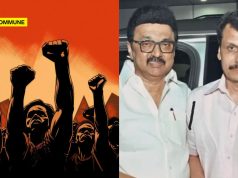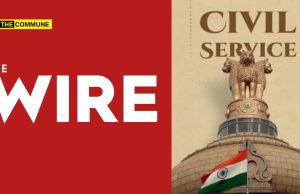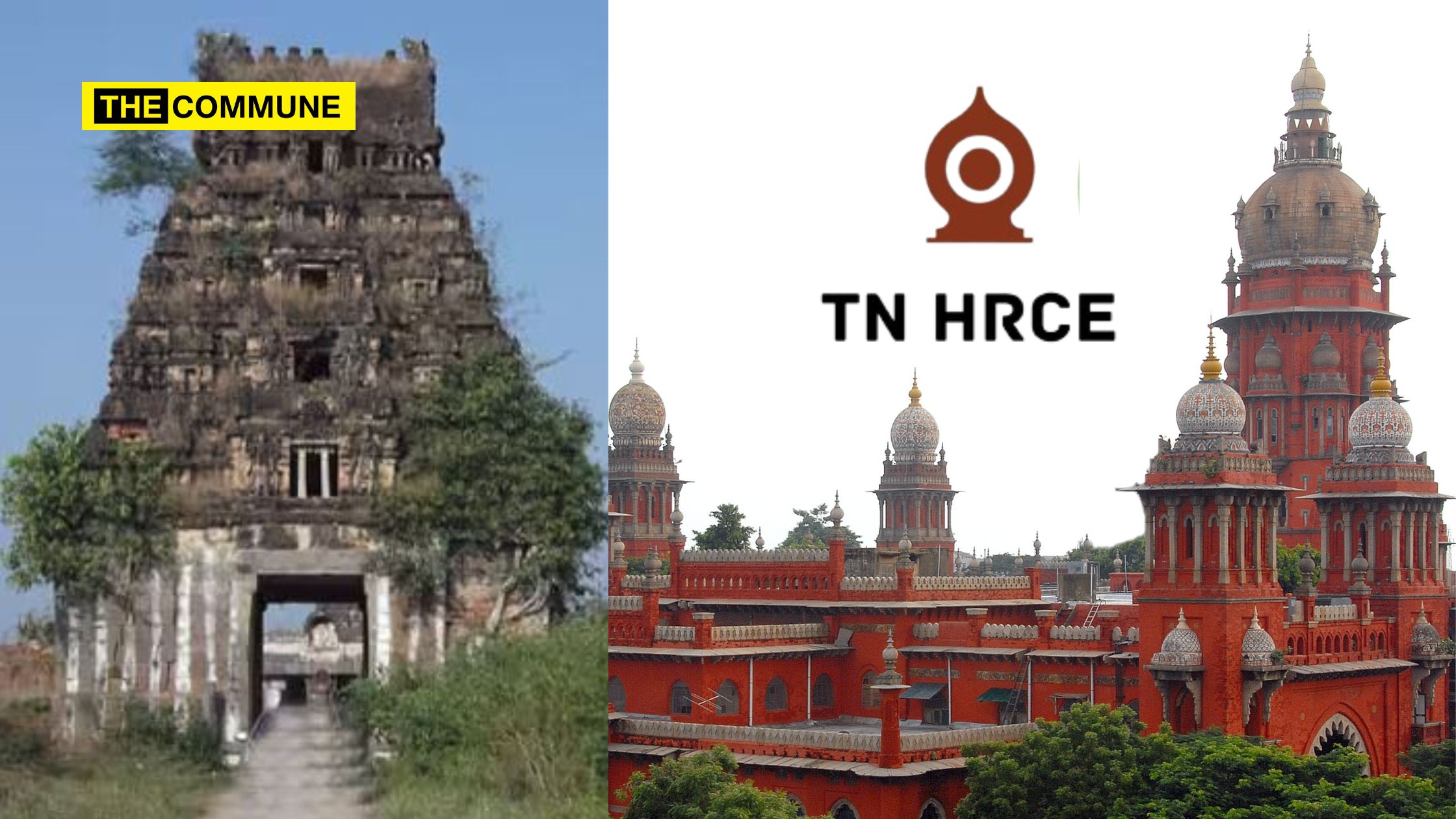
The Hon’ble First Division Bench of the Madras High Court, comprising Chief Justice K.R. Shriram and Justice Senthilkumar Ramamoorthy, heard W.P. No. 26189 of 2021 and Contempt Petition No. 5 of 2022, regarding the reconstruction and renovation of the Arulmighu Vijay Varadaraja Perumal Temple in Baburayanpettai, Chengalpet District. Advocate B. Jagannath appeared as a petitioner and party-in-person, raising concerns over the heritage and sanctity of the temple.
During the morning session, when the matter was taken up, Additional Advocate General (AAG) J. Ravindran submitted a status report on behalf of the Hindu Religious and Charitable Endowments (HR&CE) Department. However, the Bench noted that the report was not in the form of a sworn affidavit. The AAG apologized for the oversight and sought permission to withdraw the status report, assuring the court that a sworn affidavit by the Commissioner of HR&CE would be filed.
Petitioner B. Jagannath objected to the use of the word “demolition” in the tender notification issued for the temple works, arguing that such language could jeopardize the temple’s heritage value. The court expressed concern over the phrasing and directed the HR&CE Commissioner to appear in person at 2:15 PM to clarify the department’s stance. The Bench also sought clarification on whether experts in Agamas (traditional temple scriptures) and the Archaeological Survey of India (ASI) had been consulted, particularly given that the sanctum sanctorum (Garba Griha) of the temple was part of the reconstruction. The Bench cited the example of the Brihadeeswarar Temple in Thanjavur as a model for preserving heritage structures.
In the afternoon session, the HR&CE Commissioner, P.N. Sridhar, appeared in person along with the Executive Officer of the temple. The court questioned the Commissioner about the inclusion of the term “demolition” in the tender documents. In response, the AAG, with assistance from the Commissioner, submitted a sworn affidavit affirming that the tender process and related works would preserve the temple’s sanctity and heritage.
The affidavit detailed the timelines for the project, stating that the estimates had been approved as of 28 December 2024. A tender notice was subsequently issued on 3 January 2025. The work schedule outlined included:
- Approval of estimates: 1 month
- Tendering process and signing of agreements: 3 months
- Completion of works: 2.5 years
- Kumbhabishekam (consecration ceremony): 2 months after renovation
The petitioner pointed out that the tender mentioned “dismantling and reconstruction” of the sanctum sanctorum, which he argued would affect the temple’s heritage value. He emphasized the need for permissions and approvals from the Tamil Nadu Heritage Committee, formed in 2024, and the ASI.
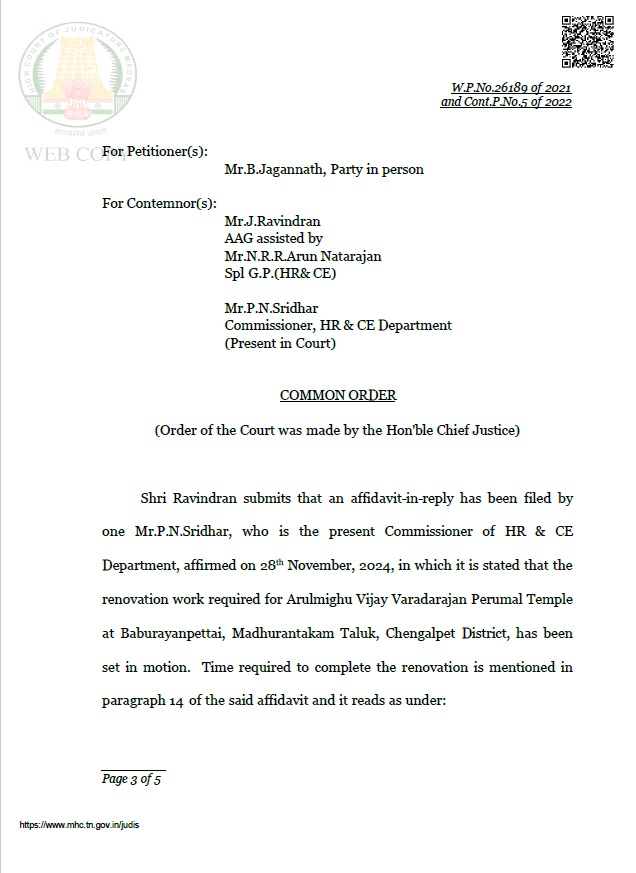
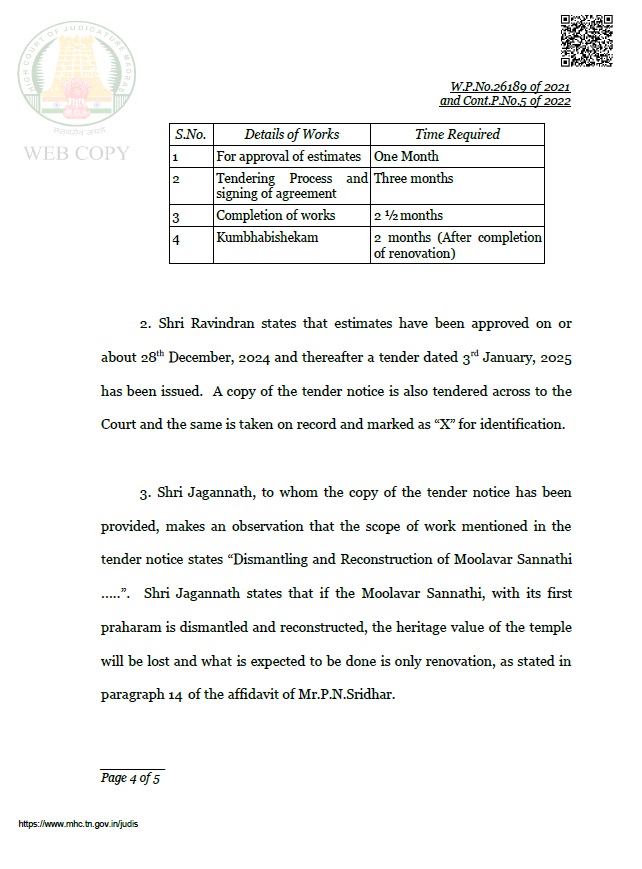
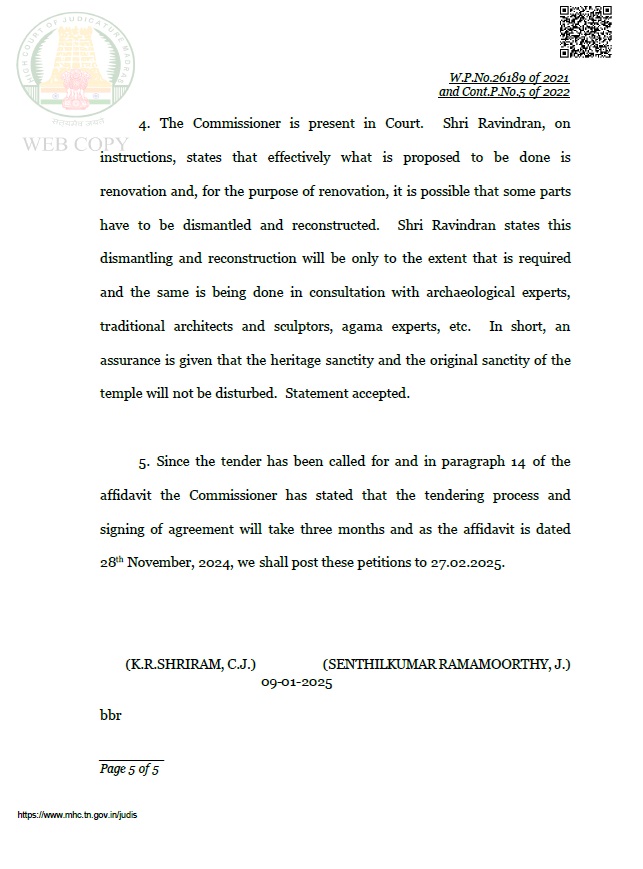
The AAG assured the court that the term “demolition” referred only to necessary dismantling for renovation purposes and that the reconstruction would be guided by experts, including retired ASI personnel, Agama scholars, traditional architects, and sculptors. The Bench recorded these assurances and noted that the works would aim to preserve the sanctity and heritage of the temple.
The petitions have been adjourned to 27 February 2025, for further compliance and updates on the tender process.
Subscribe to our channels on Telegram, WhatsApp, and Instagram and get the best stories of the day delivered to you personally.



